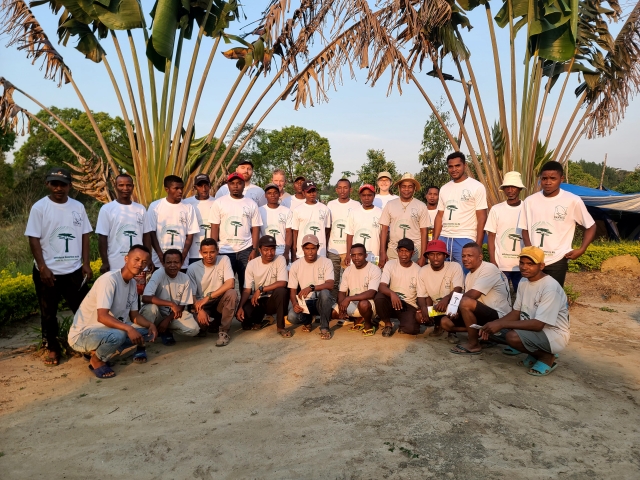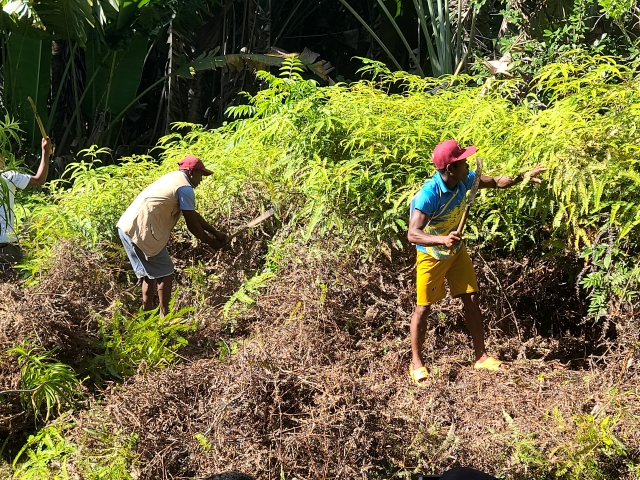
From November 9 to 19, 2024, the second workshop of the "Nursery Exchange Project" (NEP) took place in two key sites: Mangabe, Moramanga, and Ivoloina, Toamasina. This project aims to promote the exchange of best practices between three conservation organizations to strengthen efforts to restore degraded forests in eastern Madagascar.
This second workshop brought together representatives from the project's main partner organizations: Madagasikara Voakajy (MV), Chester Zoo, Madagascar Fauna and Flora Group (MFG), and Missouri Botanical Garden (MBG). Together, they discussed the challenges and opportunities related to ecological restoration and nursery management, while exploring new approaches to improve the effectiveness of field actions.
Hands-on field training
One of the highlights of this workshop was the field visits to the restoration sites at Mangabe and Ivoloina. These visits allowed participants to better understand the challenges of restoration in a real environment and closely observe the techniques used to rehabilitate degraded ecosystems.
The fieldwork focused on species identification, nursery management, and reforestation methods adapted to Madagascar's humid forests. This not only strengthened the participants' skills but also helped them identify priority actions for restoring forest ecosystems.
The "training of trainers" approach
Another central theme of this workshop was the training of trainers. The nurserymen, who have become essential actors in forest restoration, were trained not only to improve their own practices but also to pass on their knowledge to the local communities where they live. By becoming trainers themselves, they will play a key role in raising awareness and involving local residents in reforestation efforts.
This aspect of the project highlights the importance of the community approach, where nurserymen are not just practitioners but also leaders in their communities, contributing to the spread of best practices in forest restoration.
An inspiring visit to the Mitsinjo nursery
Another key step of this workshop was the visit to the nursery and restoration site of the Mitsinjo association in Andasibe. This location serves as an example of excellence in nursery management and the innovative use of reusable container pots. Mitsinjo uses pots that can last up to 10 years, reducing the time spent on potting and minimizing long-term costs.
This approach garnered significant interest among the participants, who were able to see how innovative practices can improve the efficiency of restoration operations and the sustainability of resources used.
A promising future for forest restoration in Madagascar
The second "Nursery Exchange Project" workshop strengthened collaboration among participating organizations and broadened their expertise in restoring degraded forests. Through exchanges and field visits, participants left with new ideas, enhanced skills, and the motivation to continue their efforts to restore Madagascar's fragile forest ecosystems.
With the training of trainers, the project is entering a new phase by directly involving local communities in the sustainable management of their environment. These combined efforts will help build a solid network of practitioners and trainers capable of successfully implementing restoration initiatives across the island. This project was made possible through funding from the Darwin Initiative, along with collaboration between Chester Zoo, MV, MFG, and MBG.




